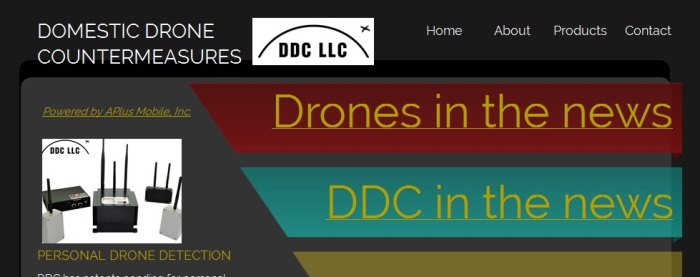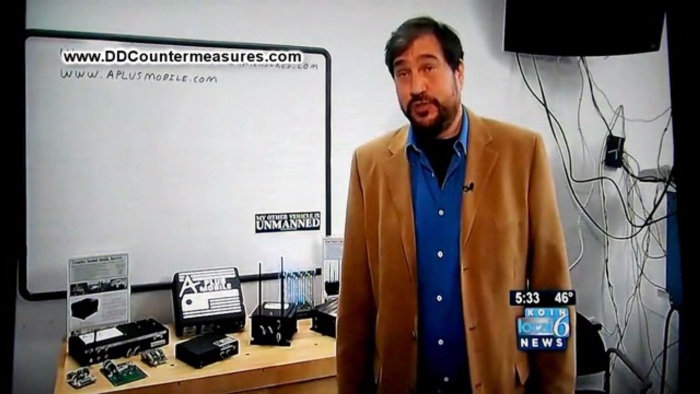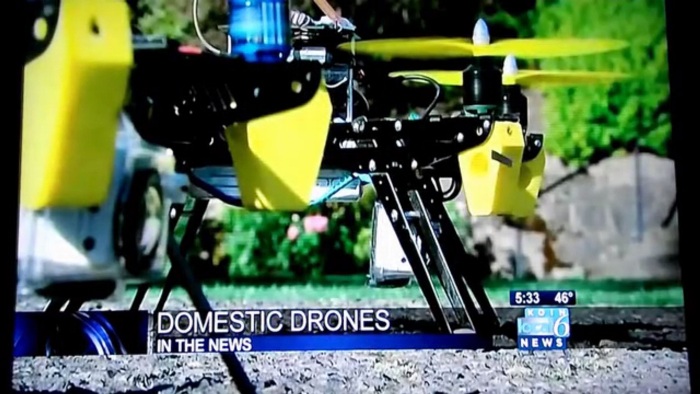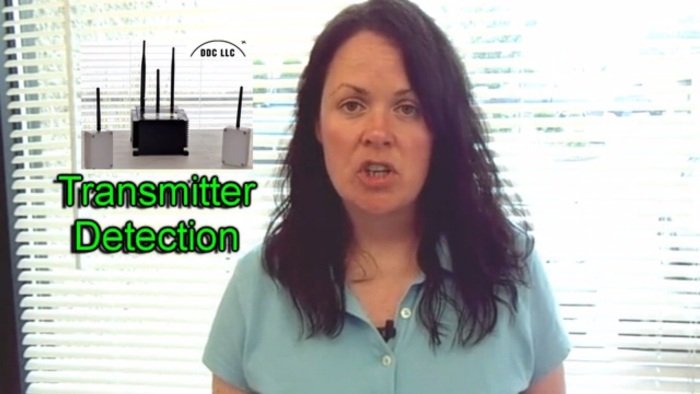Oregon Company Seeks Funding to Market Anti-Drone Technology
Are you one of those who are bothered by the idea that drones could be hovering you, posing the threat of various forms of harm? Are you worried that your neighbor or somebody you just don’t know is using drone technology to follow your every move? Apparently, one company from Portland, Oregon understands your concern and is now raising funds to produce and sell an anti-drone technology.
The company s called Domestic Drone Countermeasures (DDC) and is planning to market an anti-drone technology for the masses. The company claims that they have developed a product that can protect people from domestic drones. They have actually been selling the system online for a relatively low price of around $500. DDC was founded 2013 and has been active in raising awareness about the use of domestic drones by private individuals and by the police force. It has been one of the company’s goals to make people realize and understand the dangers of unregulated drone usage, as well as to equip people with the tools necessary to counter these dangers.
Personal Drone Detection System
DDC’s seeks to raise $8,500 through Kickstarter to produce personal drone detection system. As of this posting, the campaign has already earned $736 and 12 backers with 23 more days to go. According to the campaign’s page, people are now using advanced robots or robotic and drone components being sold by companies such as 3D Robotics and DJI Innovations. There are numerous uses for these robots or drones and snooping is easily one of them. The page particularly highlights how more than 300,000 drones are being deployed every year by individuals who are able to afford such drones.
There are no Federal Aviation Authority (FAA) rules to govern the sale and use of personal or smaller drones (at least in the United States). In a 60 Minutes interview, Senator Feinstein said that the rules are unlikely to be updated before 2015. As such, there are no guarantees that individuals can be safe from drone surveillance or threats.
How It Works
The personal drone protection system created by DDC is composed of three boxes that work together to establish a “mesh grid network” or a “detection grid.” This network or grid is designed to determine the presence of a drone in an area by detecting the activity of sensors of such drone. It is intended for detecting small personal drones outfitted with cameras and unregulated sensors.
The three boxes consist of the following:
- 1 primary command and control module
- 2 detection sensor nodes
These boxes play active roles in establishing a grid network capable of triangulating moving transmitters. The primary command and control module comes with a user interface accessible via Wi-Fi. This means that you need a Wi-Fi capable device (preferably a smartphone or tablet) to access it.
The system can produce an optional alarm to alert you of the presence of possible drones within the area covered by the system. It can also send alerts to your smartphone or tablet. You can be notified by the system of the presence of drones even if you are away as long as you have your smartphone or tablet with you.
Essentially, this system creates a custom wireless mesh grid that is self-configuring and self-healing. The network automatically takes in a new node into the existing structure in case you want to expand the coverage area. It can also automatically locate the fastest and most reliable data paths in cases of disruptions or blocks to prevent the mesh grid from easily falling apart.
Not for Advanced Military Drones
Unfortunately, DDC’s anti-drone technology, for now, is incapable of addressing the threat of sophisticated military drones. This is because of the higher altitudes that military drones are capable of flying. Also, military drones have more advanced technologies so it will require more time and R&D efforts to come up with a more advanced system that can deal with the more sophisticated threats of government-facilitated drone threats. Of course, money is also a factor. To be able to produce an anti-drone technology that can go toe-to-toe with military capabilities, $8,500 is definitely not going to be enough.
Response to the DDC Drone Protection System
In a rather unusual turn of events, DDC has been receiving threats and confrontational correspondence after its anti-drone system was publicized. DDC reported that there were people who were spewing profanity and death threat on the company. Its original domain was hijacked and they were also at the receiving end of confrontational tweets, emails, and other forms of messages. These are expectedly coming from drone makers and owners who are not fond of having their usual activities with their drones.
What DDC is offering is a technology that can counter the undesirable consequences of an unregulated technology. There should be nothing wrong with it especially when its only goal is to defend people from the undesirable capabilities of drones. It’s a forward-looking technology may help in addressing the wariness Americans feel about futuristic technology (drones, robots, AI). The company is currently in the process of securing full patents for their provisional patents on their anti-drone technology.



